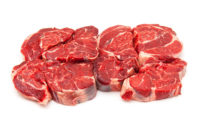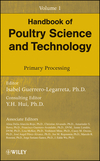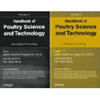More than 750 people made the trek to San Angelo, Texas, to attend the American Meat Science Association’s (AMSA) 69th annual Reciprocal Meat Conference (RMC). Angelo State University hosted the 2016 RMC in June.
Keynote sessions
Each opening keynote presentation brought a different viewpoint to the stage. United States congressmen Mike Conaway and David Rouzer held an open discussion about the status of agriculture. They spoke about current issues and laws the government is facing, with their opinions on the matter, and provided insight on future movements, as well as the opinion that “production agriculture has a wonderful story to tell.”
Damian Mason offered his witty take on the trends of agriculture, using a comedic stance to address the reality of ag’s current position. Mason’s blunt commentary made many in the crowd bust out in laughter throughout his presentation, wrapped up with an original tagline, “Agriculture: because starvation sucks.”
Another keynote session, communicating science and how to engage the public, was a trending topic through the entire conference. Jeanne Braha, from the American Association of the Advancement of Science, spoke of ways members of the scientific community can share information with people in a proactive, effective manner.
Concurrent sessions covered topics from clean labeling, consumer diversity, processing, transparency, muscle biology, artisanal meats, sustainability and meat science education.
The consumer diversity session took three different viewpoints. It started off with how to recruit diversity, how to use proactive language in a broader job description and using a consistent screening tool while being aware of possible biases. Next, looking at diversity through a corporate lens, and how to practice the ideas, with having top-level leadership support creating a culture where diversity is important. The three pillars of focus given were how to recruit for the workforce, retain in the workplace and resemble the marketplace. Today’s meat consumer was then examined, breaking down into crucial segments of millennials, baby boomers, Hispanics and Asian-Americans. These focus groups were further explained with key characteristics that affect the way they think, interact, and shop, which drive their impact on the meat market.
Artisanal meats was another captivating concurrent session topic, with speakers from marketing, culinary and business perspectives. Artisanal meats have gained popularity as consumers want to be romanced. They want to shop local, from small companies for the feeling of the experience when hearing a story. Today’s consumer is willing to pay more for what they want, and there are many opportunities for growth in the field of artisanal meats. Later in the day, Phil Bass from Certified Angus Beef LLC added his take on artisanal and charcuterie, a session that became a fan favorite for its insight and engagement — and the product samples may have also helped.
Reciprocation sessions featured topics from microbiology, welfare, environmental and antimicrobial resistance, to committee meetings, exporting, student career preparation.
Attendees not only benefited from educational sessions provided, but also had plentiful networking opportunities. Structured interaction times such as the student and professional networking breakfast, were established to create a setting for connections to be made. Additionally, at the career fair, 31 companies and universities set up to showcase the many possibilities in the industry. The family picnic was held at the Fort Concho landmark. It was a night full of activities, with Taste of RMC, lively music, fragrant Dutch oven peach cobbler, fun lawn games; even an exhibition softball game with the historic team challenging the champions from the earlier softball tournament.
Student events
On Friday night, a new adventure was underway with the first ever Intercollegiate Processed Meat Competition. Teams of three for both undergraduate and graduate students from nine universities participated. Products judged included classes of sliced bacon, sausages, center-cut ham slices and hot dogs. A difficult specifications rail proved to be a challenge to the contenders. The Texas Tech University’s undergraduates and Oklahoma State University’s graduates prevailedas the first-ever champions.
At the Iron Chef competition on Saturday, students were surprised to hear the protein would be variety meats. Teams were created with a mix of students from all schools. They were tasked to create an original dish from beef tongues, sweetbreads or beef cheek meat. The day was filled with adventures, as they tested new cooking methods and ultimately hosted a tasting for all guests to come and try the products.
The weekend of student competitions continued Sunday with the Meat Science Undergraduate Quiz Bowl. Students were tested in their knowledge of the vast meat and food industry. Buzzers were lighting up all day on campus, and the final round was held at the San Angelo Museum of Fine Arts, where Texas Tech University came away with the win over Colorado State University.
San Angelo served as an excellent host, and AMSA is looking forward to bring RMC to Texas A&M University in College Station, Texas, June 18-21, 2017. NP





